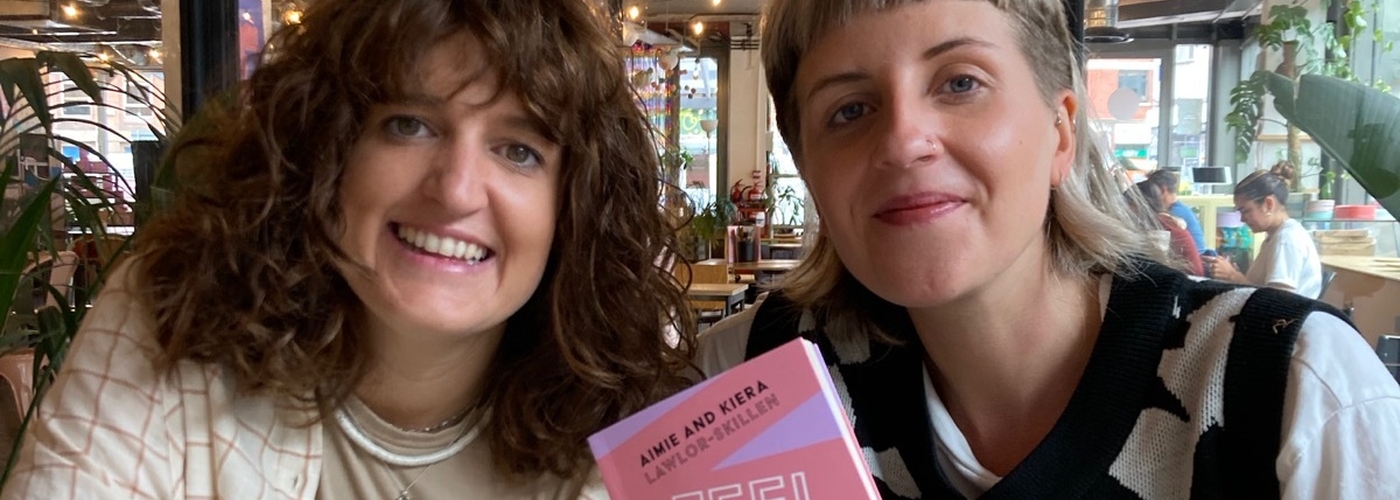We talk to Kiera and Aimie about mental health, toxic positivity, and putting their brand into a book
IF you’ve not seen the Feel Good Club cafe, you’ve probably seen the billboards. And if you’ve not seen the billboards, you’ve probably seen the T-shirts and the Instagram account. If not, I’ll explain.
Feel Good Club is a Manchester-based business set up by married couple Aimie and Kiera Lawlor-Skillen. It began life as a side project for Kiera to focus on when she was battling an eating disorder and evolved into a brand that does everything mentioned above. The clothes, NQ cafe and Instagram account all have the same goal: “to make one person feel better about themselves each day” through their messages about balancing your feelings and prioritising your mental health.
"The way that we try to apply things is; better days are coming but it's okay that today isn't that day."
The brand now has an Instagram following of 335,000 people (so they’re smashing that “one person” target). And as of a few months ago, they have a book as well: The Feel Good Club Guide to Feeling Good and Being Okay with it When You’re Not.
I meet them on publication day at their cafe on Hilton Street and we chat about how the book came about; a commissioning editor from HarperCollins approached them after seeing the huge response they were getting online.
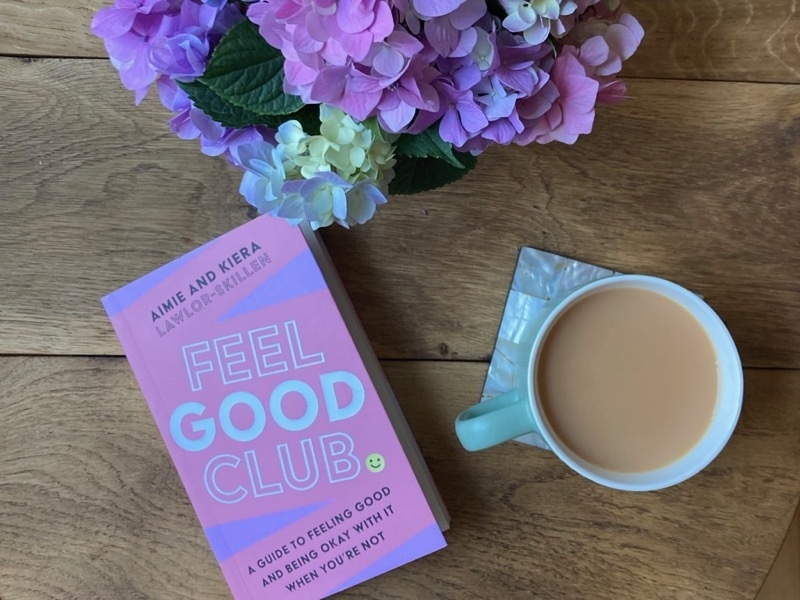
From influencers to authors
It’s a well-worn path nowadays, from social media influencer to self-help book author, and it’s one met with cynicism from some. I ask Kiera and Aimie if they’re anticipating people questioning their credentials for writing a book about mental health, and how they would respond to that.
Says Kiera, “I don’t necessarily think the book is about mental health. In a way, yes it’s about mental health because we all have 'mental health'. One thing that gets to me is that mental health is only ever spoken about when someone is suffering with it. It’s never spoken about as day-to-day maintenance. So the book isn’t about mental health, it’s about how you feel.
“We’ve always said, and we say in the book, we’re not professionals and we don’t have the desire to be a professional. But we’ve experienced things and by talking about those experiences and what we’ve struggled with, we hope it will make one person at least feel less alone and that they’re not the only person who has struggled.
“We aren’t giving the answers. We’re talking about the experience of it. And that’s the most important thing: letting people know that everybody feels these fluctuating feelings and emotions.”
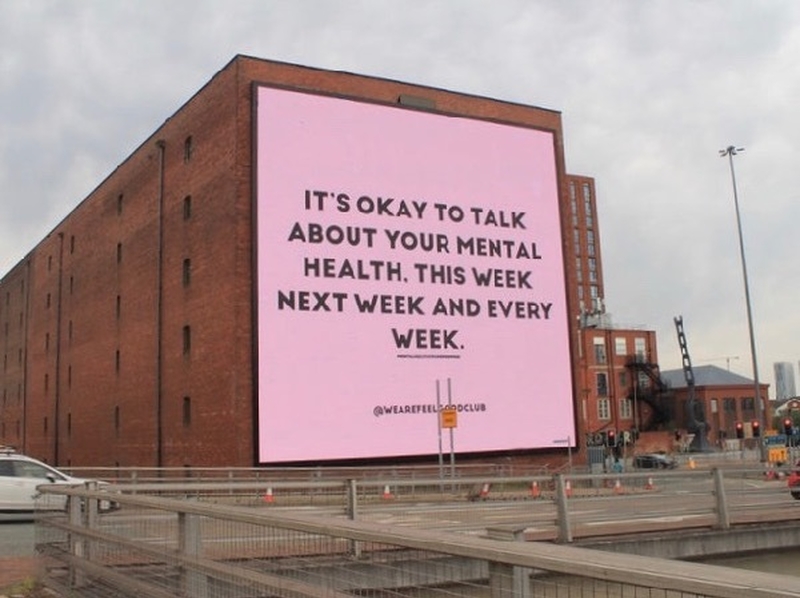
Says Aimie, “It’s about opening up. If we open up about our struggles and what we’ve been through with our mental health then it opens up a conversation for somebody else to then talk about it. And that’s how you then normalise the conversation around mental health."
I would say that conversations about mental health are normalised nowadays, but only online where there are countless Instagram accounts and Mental Health Awareness Week seems to come around every month. (There's one happening right now, as it happens).
Step off the internet though, into the places where we actually live our lives (our homes, colleges and workplaces) and mental health isn’t the priority; it’s way down the list.
For me, that’s where this book’s value lies; it takes the Feel Good Club’s messages out of the passive, nonstop stream of the internet and into your hands so that you can consciously turn to it when you want some solid, grounding advice.
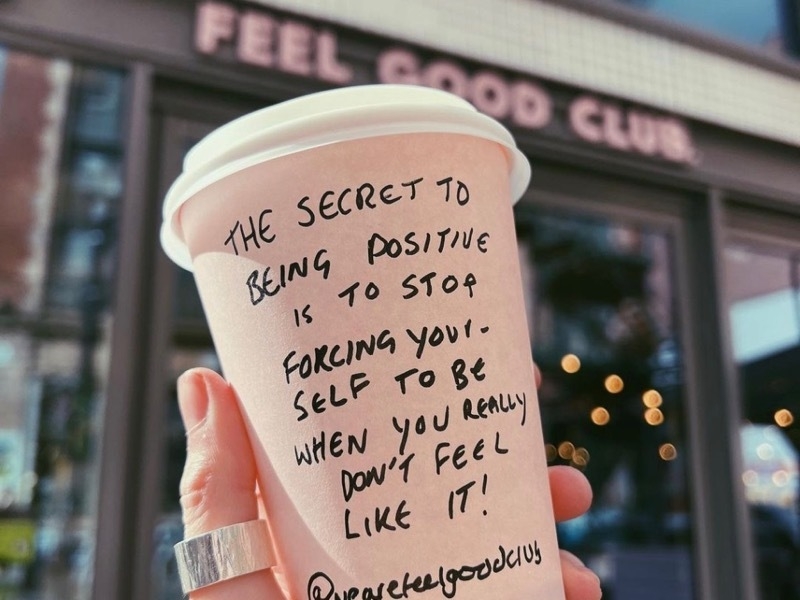
What kind of advice will you find in it? As a woman in her mid-40s, I’d say it’s the kind of thing I know already but still repeatedly forget unless somebody keeps reminding me. And that’s not because I'm forgetful; it's because so much of what we’re expected to do nowadays goes directly against protecting our mental health to the extent that we stop questioning it, and just go along with the madness.
I find myself returning to chapters on issues like not feeling guilty, setting boundaries, being proud of yourself, and avoiding comparison. The snippets of wisdom found there aren't profound or ground-breaking but they are sensible and honest and necessary. And the book is small enough to carry around in your bag on those days when the shit seems to be coming at you from all directions.
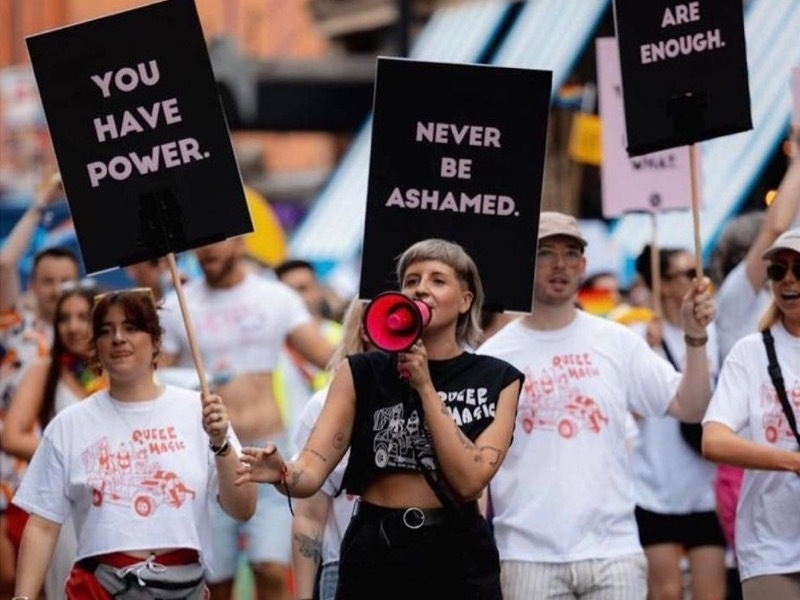
The curse of toxic positivity
We move onto talking about toxic positivity. The name Feel Good Club might suggest a "positive vibes only" attitude but anyone who follows their feed will know that’s not really what they’re about; they’re just as likely to post about feeling crap as about feeling good.
Says Kiera, “Toxic positivity for me is when you feel like you have to put on a brave face and pretend that you're okay. The way that we try to apply things is, better days are coming but it's okay that today isn't that day.
“When I struggled with my mental health, I continually brushed off the fact that I wasn't okay, and that forced me further and further down. And actually, if I'd just turned around and said, 'You know what? I'm not doing okay but I know, someday I will,' I think I would have gone through that time a lot quicker than I did.”
Kiera did eventually move through those difficult times and her and Aimie's life looks pretty good right now from where I'm standing. They've achieved several of their dreams; by establishing the physical space for Feel Good Club, by writing this book, and if it's not too corny to say so, by getting married to the person they love.
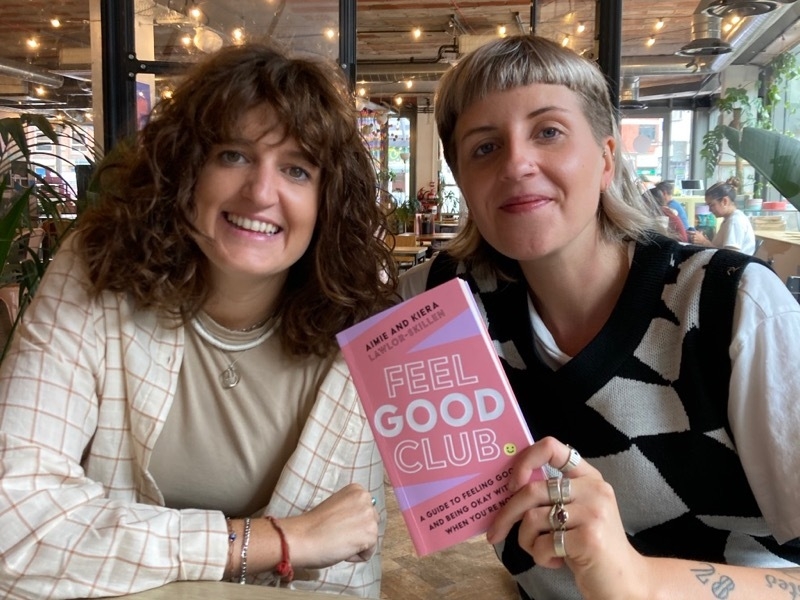
Passion and self-belief
I tell them I like the way they embark on big projects even when they don't exactly know how they're going to work out. For example, opening a cafe when they had no experience in hospitality. I'm also thinking of a time I heard them describing the first days of their t-shirt printing business, a story that's recounted in the book. It was calamity after calamity and Aimie seemed to spend a lot of time crying on the stairs.
"Everything we've done, we've never had an idea about, we've never had a clue," Aimie says. "But I always say if you do something on passion, it'll do well. As long as you're passionate about it."
Kiera adds, "I think that's what makes it authentic. Because we're just trying things along the way and the mission is to make people feel good and to feel good about ourselves. And if we can do that, it's so rewarding for us."
This confidence in their own abilities; this belief that it'll work out and even if it doesn't, they'll still be okay, is something you see a lot in men but not so much in women.
Why that might be is a topic for another day. I'm just glad that there are two very visible Manchester women demonstrating the art of creating an existence for yourself that you love, rather than being swept along by other people's views of what you can or can't do. Never mind the inspirational Insta quotes, their biggest achievement is living an inspirational life.
Follow Sarah at Body Confidential (Instagram) or Body Confidential (Facebook)
Read next: 10 fitness and wellbeing things to do in Manchester in October
Read again: Network trail: 10 walks by train from Manchester
Get the latest news to your inbox
Get the latest food & drink news and exclusive offers by email by signing up to our mailing list. This is one of the ways that Confidentials remains free to our readers and by signing up you help support our high quality, impartial and knowledgable writers. Thank you!






